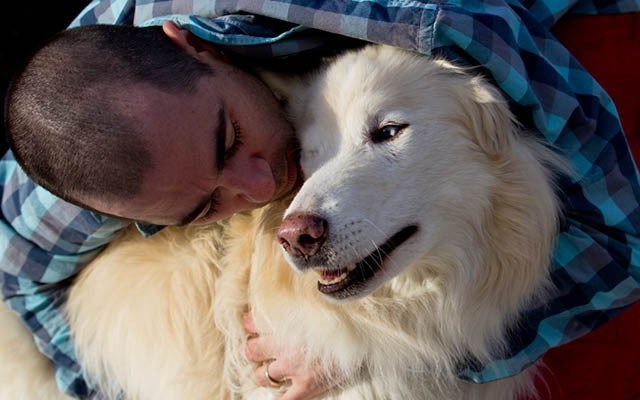There is a mythical quality surrounding the wolf. In fairytales it is the villain responsible for blowing over poorly constructed homes and ingesting senior citizens. In the ultra -popular HBO series Game of Thrones, dire wolves grow up to defend the Starks from assassins and enemy soldiers.
In human history the wolf has long been revered as a symbol of freedom juxtaposed by its nature as a predator of children and livestock.
All wolves, regardless of colour or features, are genetic descendants of the Gray Wolf Canis Lupus. The mythologized Dire Wolf (Canis Dirus) became extinct around 16,000 years ago when the the Gray Wolf crossed into North America from Eurasia via the Bering Strait and began competing for its prey.
Despite its portrayal as "The Big Bad Wolf," this furry predator has begun to appear in domestic homes over the last century in the form of wolfdog hybrids, a cross breed between Canis Lupus and the domestic dog Canis Familiaris. Wolfdogs will generally exhibit wolf-like characteristics — such as being destructive, food driven and attempting to escape — depending on their wolf content.
"We had a good stretch of both of them off leash and running around," said Sean McGill, speaking of his wolves Odin and Ida whose various litters account for many of Whistler's domestic wolfdogs.
"But by the time Odin was five it was like OK, unless we're going walking in the forest they have to be on leash because any other 'tough-guy' dogs would always butt up to him. And Odin was never one to back down."
Odin is a 13-year-old arctic wolf with lineage from Baffin Island while Ida, 11, is estimated to have around 75 per cent timber wolf content crossed with Alaskan Malamute. The two have landed themselves and McGill into trouble more times than he can count; Ida once killed a rabbit that belonged to a little girl down the street from their Pemberton residence, and she has broken into several chicken coops. Not surprisingly these incidents led to knocks on the door from the RCMP. Odin has bitten off the nose of a neighbour's llama then castrated the farm animal, — that also led to a visit from the authorities.
"They've been a ridiculous hassle at times," said McGill.
But for every story of the wolves running away for several days at a time in search of nomadic prey, there is also a happy tale. Tales that would rarely be told about other dogs.
"I had Odin in a photo shoot for FHM magazine when he was eight months old," recalled McGill.
"We were hanging out in Milestones Bar one time and I was asked by another production crew if he could be on the set for a European quarterly magazine. Because of that he got me a heli shoot the next day, it was a paid gig and the only time I've been in a helicopter in my life."
Such stories can romanticize the idea of wolfdog ownership, but adopting one can extend beyond the commitment of owning other breeds.
"The problem is when they take a domestic dog and breed it to a wild dog like a wolf, you have the non-fear factor of that domestic animal," says Shelley Black, co-founder of the Northern Lights Wildlife Wolf Centre in Golden, B.C.
"Then you have the wolf who is naturally afraid. Animals that are afraid will bite out of fear. You put those two combinations together and it's like having a child that needs Ritalin."
Black says that it's generally wolfdogs with over 50 per cent wolf content that exert undesirable pet characteristics such as being fearful, destructive and not wanting to be contained.
"I've seen a wolf rip apart chain-link to escape," she said.
"Usually the first two years they are fabulous dogs. A wolf doesn't mature until two to three years of age, then you start seeing the change and what that animal is going to be like."
Black and her husband are advocates for wild wolves in B.C. and Alberta and are opposed to the current hunting laws, but they do not condone wolfdog ownership themselves. Northern Lights receives several calls a week from owners who are unable to cope with their wolfdogs and are looking to offload them to shelters.
"We've had them and rescued them, but we're not advocates of it whatsoever," she said.
While prospective dog owners may look to wolfdogs for fulfilling their fantasies of from wolf-praising TV shows like Twilight and Game of Thrones, an understanding of their wild nature and tendency to roam is necessary before adopting. And just as for any household pet, a stable home and lifestyle is needed before considering ownership.




